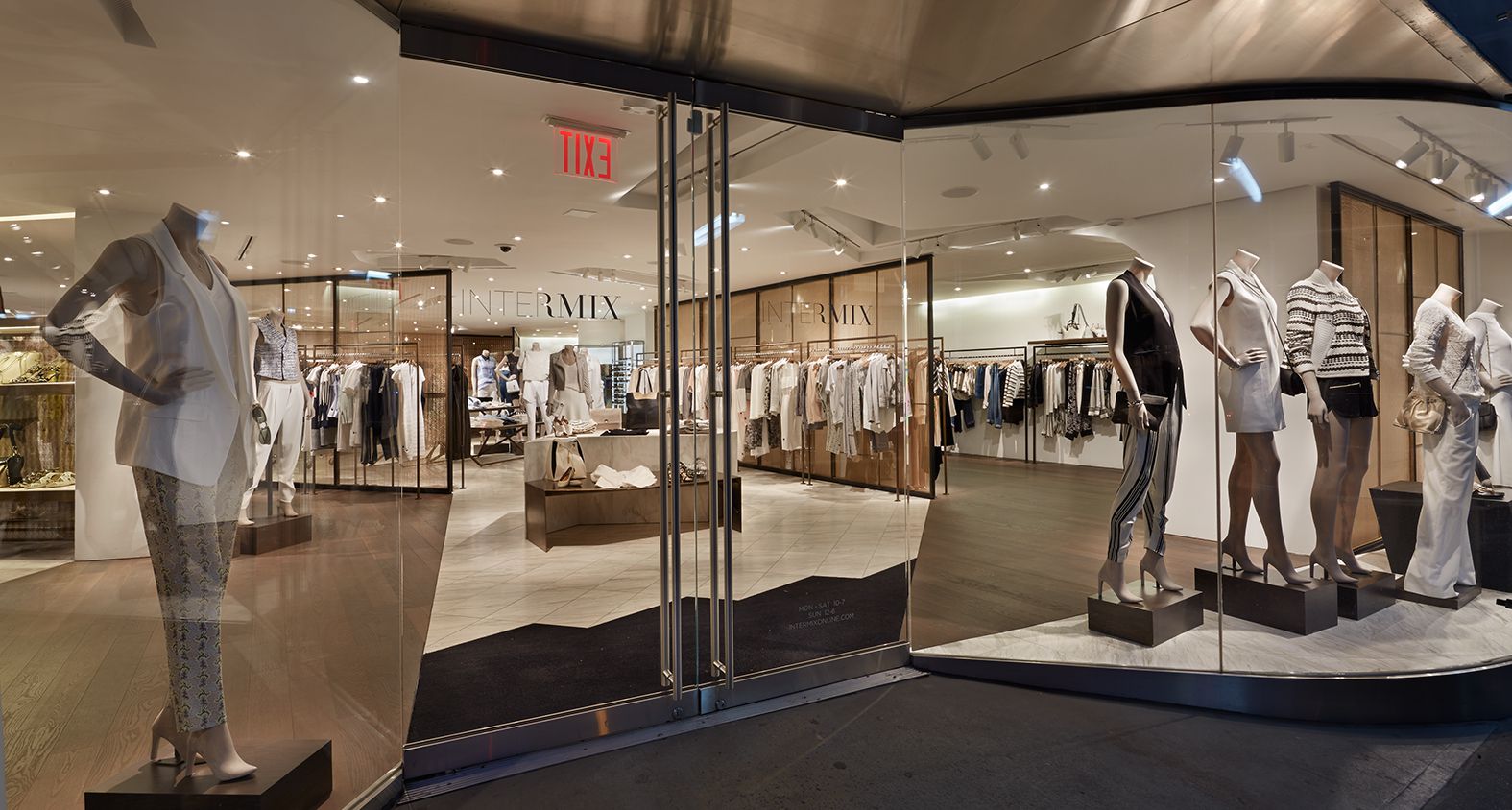
Intermix, the multi-brand retailer that trades primarily in contemporary and entry level-designer fashion, is changing hands once again after being sold by Gap Inc., to private equity firm Altamont Capital Partners in 2021.
The new buyer is Regent, another private equity firm, but one that specialises in retail, with investments including Club Monaco, Escada, La Senza and Sassoon. WWD first reported the news, which has been confirmed by BoF. The terms of the deal were not disclosed.
On Wednesday, a large percentage of the Intermix staff was furloughed, according to one employee, while others were terminated.
A representative for Intermix did not immediately respond to a request for comment.
The fate of Intermix has been in question for several weeks, when brands stopped receiving payment for shipped orders. Internally, management — including Altamont and interim CEO James Rushing — insisted that the company was not planning to file for bankruptcy protection, but did not communicate their plans to staff until this week.
Rushing replaced another interim CEO, industry veteran and Intermix board member Karen Katz, who stepped in after the exit of Jyothi Rao in May. However, Katz resigned in November after the board failed to find a permanent replacement for Rao. (Katz did not immediately respond to a request for comment.)
According to multiple sources, brands that were not paid for merchandise — which has also not been returned to them — have yet to be told whether they will receive payment for those goods. October was one of the company’s worst months since the pandemic rebound, as fashion brands in the US have struggled as inflation and layoffs have squeezed discretionary spending on apparel. (While many brands and retailers will post gains in 2022, the fall has been down almost across the board, according to multiple sources across the fashion and luxury industries.)
But Altamont’s bet on Intermix was a risk from the beginning. While luxury e-commerce boomed at the height of the pandemic, it has slowed as discretionary spending shifted to physical stores, and also back to experiences. Intermix has benefited from maintaining a significant physical footprint — nearly 30 stores — and being known for selling what is colloquially called “going out clothes” — or dresses, tops and jeans good for partying, which have regained relevance as people get back to socialising.
However, the amount of investment Altamont would need to make in order to accelerate online growth was too big, according to sources. (At present, Intermix generates about $250 million a year in sales, according to a source.) Competition in the online fashion market has never been more intense, and retailers from Farfetch to Net-a-Porter to Matchesfashion have had to make changes to their strategies in recent months in order to attempt to keep up.
Internally, the Intermix staff is hopeful that Regent — which has expertise in retail operations — is a better fit for the brand as the US enters a period of economic uncertainty.
Learn more:
Can Private Equity Win With Fashion E-Commerce?
Gap is offloading Intermix to Altamont Capital Partners, which aims to triple sales on the back of post-pandemic exuberance and e-commerce. Finding a satisfying exit may prove tough.



